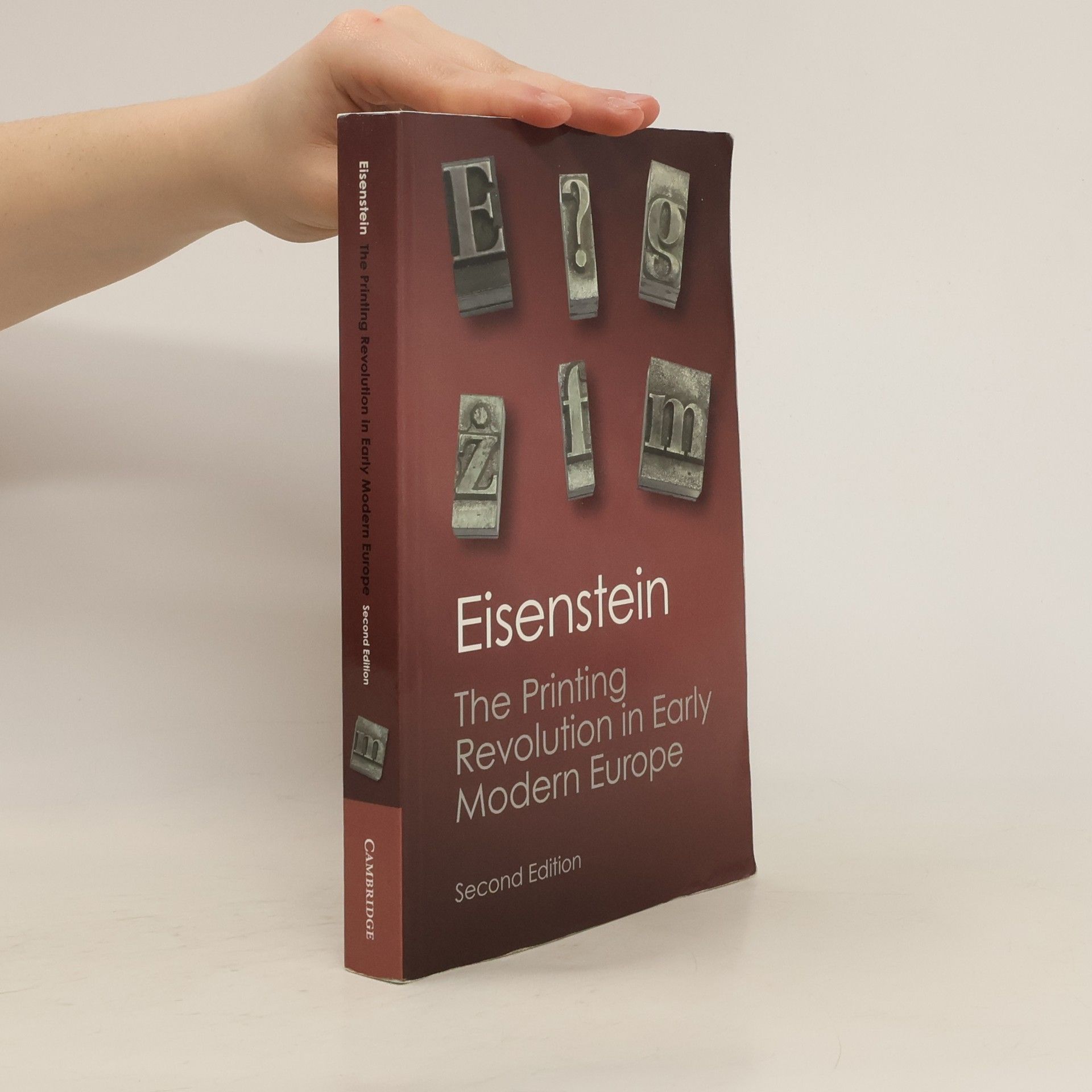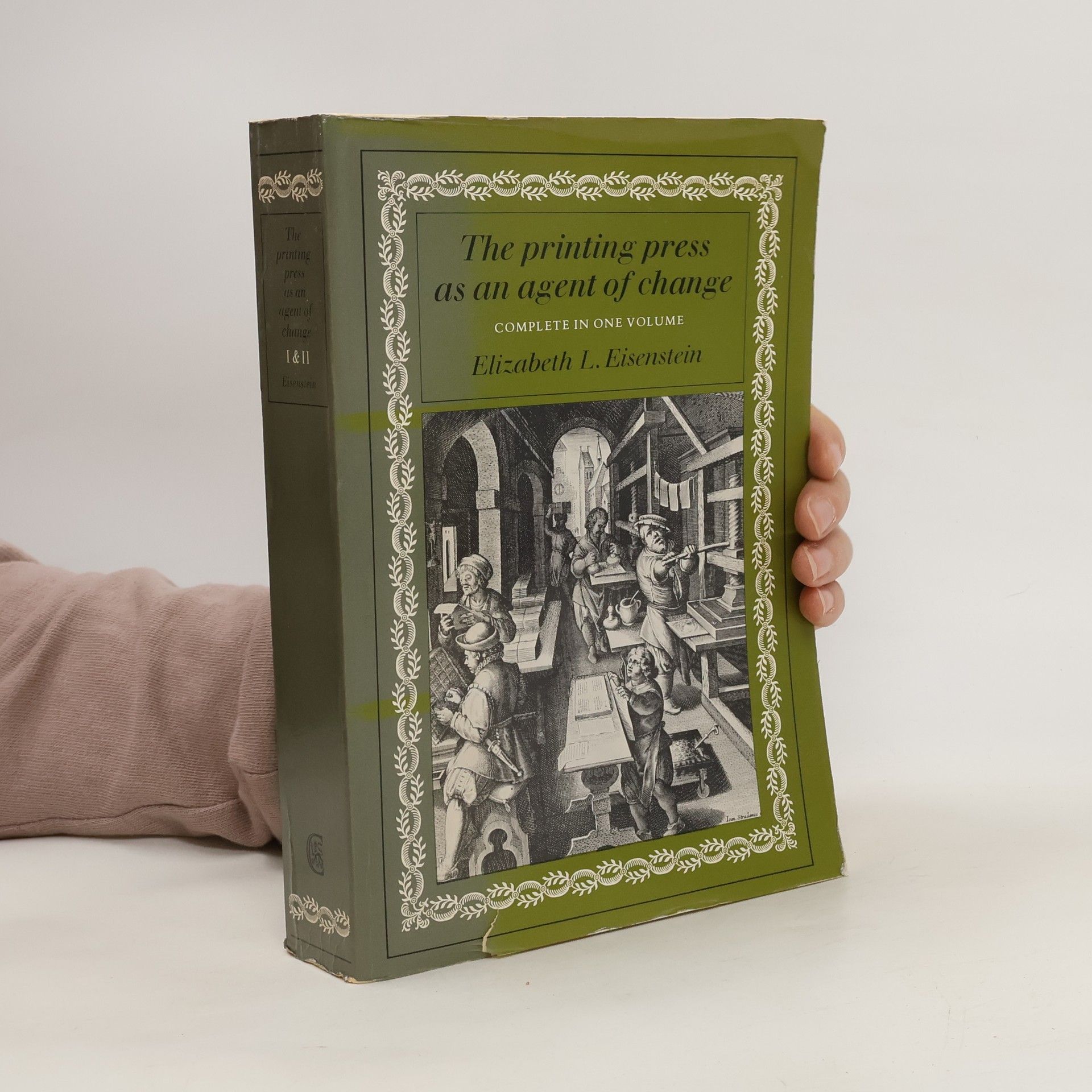The printing revolution in early modern Europe
- 401 pages
- 15 hours of reading
Summarises the initial changes introduced by the establishment of printing shops and discusses how printing affected major cultural movements.
Elizabeth Lewisohn Eisenstein was an American historian who focused on the French Revolution and early 19th century France. She is most renowned for her groundbreaking work on the history of early printing. Eisenstein explored the pivotal transition from manuscript culture to print culture, detailing how the printing press fundamentally reshaped Western civilization. Her scholarship illuminated the profound cultural transformations brought about by the advent of mass printing.




Summarises the initial changes introduced by the establishment of printing shops and discusses how printing affected major cultural movements.
There has long been confusion surrounding Johann Fust, Gutenberg's former business partner, and the infamous Doctor Faustus, a connection that reflects the early perception of the printing press as a form of black magic. Despite this, many churchmen and statesmen embraced it as a "divine art." Sixteenth-century Lutherans celebrated it for liberating Germans from papal authority, while seventeenth-century English radicals viewed it as a tool against oppressive rulers. An early colonial governor of Virginia lamented the lack of printing in his colony, yet a century later, revolutionaries recognized Gutenberg's role in challenging the dominance of priests and kings. Scholars praised printing as a peaceful art, acknowledging its role in advancing knowledge while expressing concerns about information overload. In her insightful work, the author explores five centuries of mixed feelings toward printing and printers, linking technological advancements with cultural changes. She reflects on the nineteenth-century steam press, seen as both a symbol of progress and the end of a golden age. Predictions of print's demise due to digital media are met with skepticism, as the relationship between print and commerce remains complex. The ongoing challenge of preserving vast amounts of text amid resource constraints in libraries adds to this ambivalence. Ultimately, attitudes toward print will remain varied, and claims of its death are greatly
Originally published in two volumes in 1980, The Printing Press as an Agent of Change is now issued in a paperback edition containing both volumes. The work is a full-scale historical treatment of the advent of printing and its importance as an agent of change. Professor Eisenstein begins by examining the general implications of the shift from script to print, and goes on to examine its part in three of the major movements of early modern times - the Renaissance, the Reformation, and the rise of modern science.
Die Erfindung des Buchdrucks ist für die westliche Zivilisation von ungeheurer Bedeutung. In ihrem bahnbrechenden Buch analysiert Elizabeth Eisenstein erstmals die Konsequenzen dieser Erfindung im Zusammenhang. Entstanden ist ein faszinierendes Werk über die revolutionären politischen und kulturellen Auswirkungen der Druckerpresse auf die Renaissance, die Reformation und die neuzeitlichen Wissenschaften.